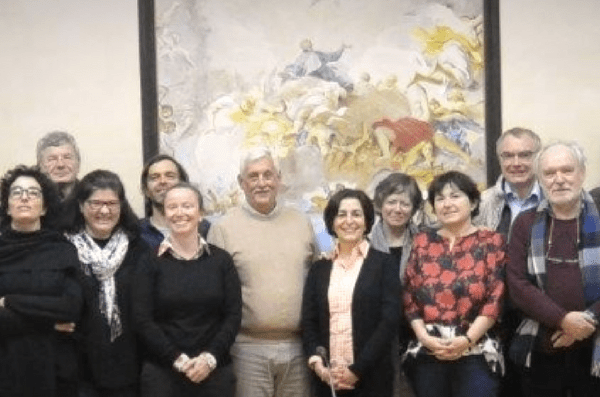
John Guiney SJ, Director of Irish Jesuit Missions and the Jesuit Centre for Faith and Justice was in Rome earlier in the month at a meeting of representatives of organisations which comprise the Xavier Network.
The group of 13 Jesuit Mission offices and NGOs from Europe, Canada and Australia were discussing responses to emergencies in Nepal, the Philippines and Haiti as well as the progress of the Fe y Alegria [a movement for integral popular education and social promotion] organisation in Africa.
Another issue, that is of vital importance to the group and already forms a core part of the strategy in Jesuit organisations is that of child safeguarding. The Child Protection Policies which are in place in the institutions present at the meeting, and with collaborative partners were analysed with the network’s Consultant on Child Protection.
The Xavier Network also discussed its global shared projects, including the ‘Amazon Ecology and Education Project’. Members of the group clearly recognise that when its members collaborate in service to the most vulnerable and marginalised people in the world, it is more effective in transforming lives. They also met with the Jesuit Refugee Service (JRS) International organisation to discuss its work.
Meeting with Father General Arturo Sosa SJ
The network had an important meeting with Fr Arturo Sosa SJ, Father General of the Society of Jesus (Jesuits). John Guiney SJ shared the most important points from this meeting and how it brought the goals of the network sharply into focus.
The Father General reiterated the key messages of the 36th General Congregation (GC36) meeting which was held in autumn 2016. The key issues from this meeting were living the mission of justice and reconciliation, discernment, collaboration and networking.
He also emphasised that the Society of Jesus cannot work on its own. As its founder, St Ignatius of Loyola often spoke of the ‘minimal Society’, Fr Sosa thinks that Jesuits should now speak of it as the ‘collaborative minimal Society ‘. Alone it can do little, but in collaboration with others it can do much.
Fr Sosa said that we cannot talk about Jesuits and their collaborators because Jesuits themselves are collaborators in the same mission of the Church. He spoke of the important message of the GC36 meeting, in relation to discernment. It asks not what we should do but what God wants us to do in today’s world.
John added to this by saying that ‘in Jesuit works [organisations] we collaborate with men and women who are our partners and work colleagues. We also collaborate with others who share our vision of the world and mission of transforming it into a better place. We work with all people of faith and no faith who pursue Gospel values.’
Discernment within organisations is the process by which leaders actively listen and engage in mutual discussion about its direction. This leads to decisions, which lead to planning, which lead to their execution.
Conversion underlies the discernment process. Discernment ultimately leads to personal, communal and institutional conversion. An institution must be able to change direction if necessary, for the purpose of the mission. Some may need closure, or renewal and transformation. These results are an essential part of true discernment.
The Xavier Network was inspired and reenergised by the words of the Father General which helped to guide them in their mission of working in faith to promote justice.

